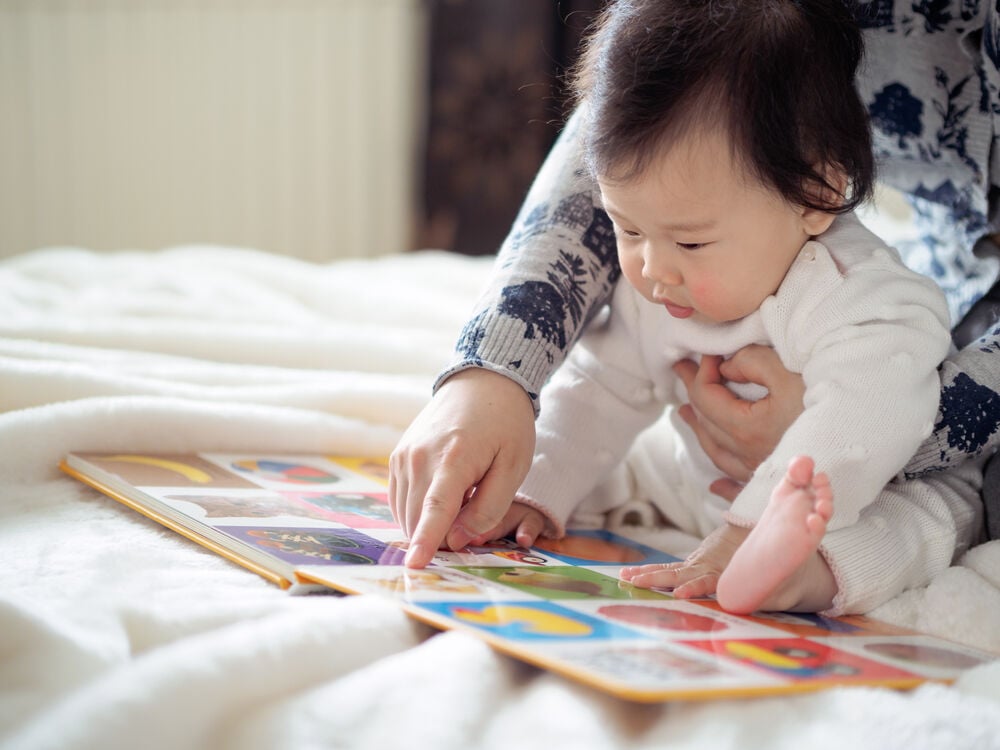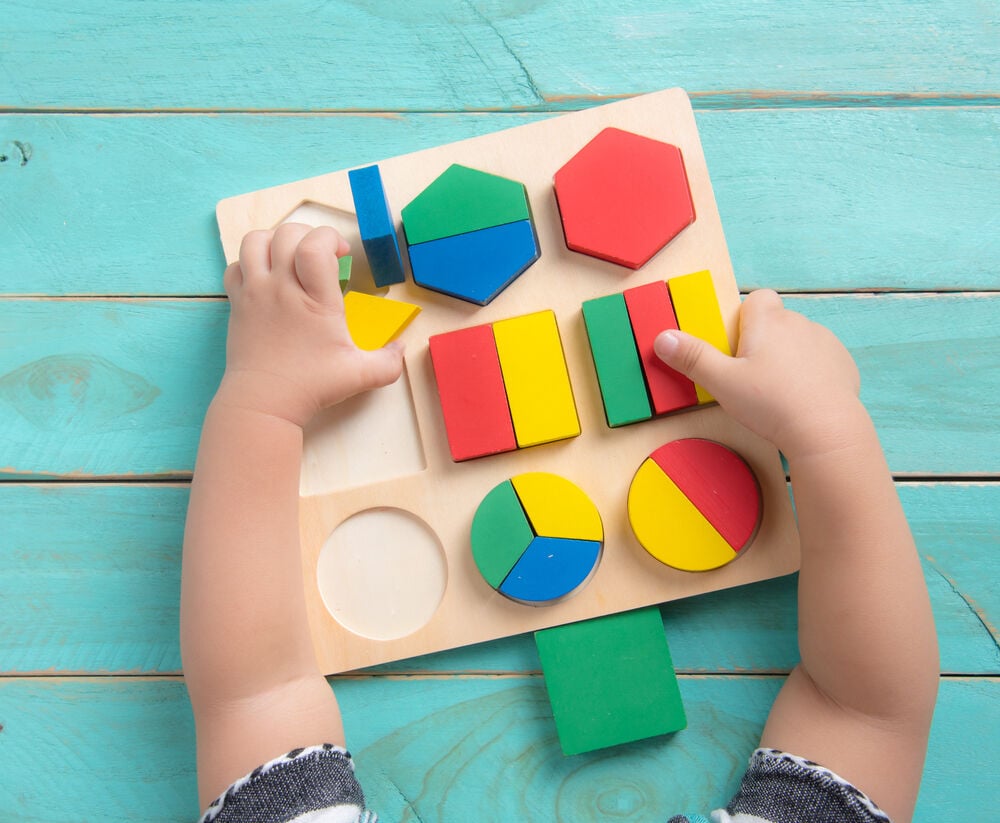Get ready to be on your feet, for your baby is turning into a 10-month-old! At this age, you will notice a rapid development of their — physical, mental, and social. So, what are the things to do with 10-month-old baby to help keep them engaged and channel their energy? Find our list of recommended activities and more in this article.
-
Tracking cycle
-
Getting pregnant
-
Pregnancy
-
Help Center
-
Flo for Partners
-
Anonymous Mode
-
Flo app reviews
-
Flo Premium New
-
Secret Chats New
-
Symptom Checker New
-
Your cycle
-
Health 360°
-
Getting pregnant
-
Pregnancy
-
Being a mom
-
LGBTQ+
-
Quizzes
-
Ovulation calculator
-
hCG calculator
-
Pregnancy test calculator
-
Menstrual cycle calculator
-
Period calculator
-
Implantation calculator
-
Pregnancy weeks to months calculator
-
Pregnancy due date calculator
-
IVF and FET due date calculator
-
Due date calculator by ultrasound
-
Medical Affairs
-
Science & Research
-
Pass It On Project New
-
Privacy Portal
-
Press Center
-
Flo Accuracy
-
Careers
-
Contact Us
10-Month-Old Baby Activities: 8 Things to Do With Your Child


Every piece of content at Flo Health adheres to the highest editorial standards for language, style, and medical accuracy. To learn what we do to deliver the best health and lifestyle insights to you, check out our content review principles.
What is your 10-month-old able to do?
At this stage, you may be wondering, what should my 10-month-old be doing? Your little one turning 10 months old is interesting for many reasons, one of which is that you may witness significant growth in their skills. From better hand-eye coordination to greater physical and verbal skills, here is a quick list to help you understand what do 10-month-old babies do:
- Verbal skills: Your baby may now be able to make a variety of sounds, some of which may almost sound like real words. They can also make a series of gestures, such as shaking their head 'no.' At this point, they are likely to be able to say things like mama, dada, and bye-bye while waving.
- Cognitive skills: At 10 months old, your baby's brain is developing rapidly —and so are their cognitive skills. They may begin to imitate your actions, such a laughing, brushing hair, and more. This is also the point where they will begin to realize that even if you are out of their sight, you still exist.
- Social skills: As their cognitive skills grow, so does their personality. You will see them smiling and trying to have a conversation. They may start responding to those around them with a smile or by feeling shy. At this stage, your baby is starting to develop a mind of their own, and will try to assert their independence in different ways. You may also notice some stranger anxiety.
- Physical coordination: Your baby's motor skills are developing, so they are able to confidently sit and crawl at this age. They may also try to walk with the support of furniture, which is called cruising. Better hand-eye coordination means they are now able to feed themselves, place toys in a box, and poke things. At this stage, babies also develop a pincer grasp — coordination of the index finger and thumb to pick up and hold various objects.
Take a quiz
Find out what you can do with our Health Assistant
What to teach a 10-month-old baby
As your child's development is rapidly progressing, there is much you can do to encourage this growth. You may stimulate their language and social skills by talking to them and encouraging them to respond. You may indulge their curiosity by encouraging them to read, sing, and draw. Certain educational toys, such as building blocks and sorting toys, will help stimulate their concentration and motor skills. It's also important for you to stay physically and mentally alert to keep up with your energetic baby!
Activities for a 10-month-old baby
As your 10-month-old baby's development grows by leaps and bounds, you may be wondering how to help keep it going! Here is a list of activities for 10-month-old babies to do through the day. You can add these activities during playtime, in between their regular nursing and sleeping schedule. These will help keep them engaged and will enhance their growing curiosity and skills.
Reading

It's a great idea to set aside some time each day to read with your little one. Reading a story out loud with animated expressions and sounds will keep them engaged and help with their memory skills. Keeping books with different colors, texture, and flaps within their reach will motivate your child to explore them.
Drawing
To encourage their already growing motor skills, drawing is the ideal activity. Try offering them a big sheet of paper and a crayon to draw as they crawl around. While they may not yet be able to scribble in a sophisticated manner, they may enjoy drawing with bright colors. Ensure the crayons are non-toxic and keep a watchful eye to prevent your baby from trying to chew or eat them.
Singing
At this age, you may notice your baby beginning to enjoy music and bobbing their little body to songs. Stimulate their musical side by singing the tunes your baby appears to enjoy and encourage them to hum along. This will help develop their language, rhythm, and motor skills in an enjoyable manner.
Imitating
10-month-old babies are keen observers and imitators. Studies have found that when babies observe others' body or facial movements, the corresponding area of their brain gets stimulated. This observation and imitation help with long term memory, as well as social and emotional bonding. Encourage them to imitate simple gestures, such as waving goodbye and clapping hands together.
Peek-a-boo
At this age, your baby is slowly beginning to understand the concept of object permanence. This means understanding that even if something is out of sight (like you going into another room), it still exists. Playing peek-a-boo is a fun way to reinforce this concept in their mind. Cover your face with your hands or hide their favorite toy under a blanket, then reward them with a big smile and "peek-a-boo" when the face/toy is revealed. Playing peek-a-boo also helps build visual and motor skills while stimulating their sense of humor!
Stacking
Stimulate your child's motor and concentration skills by offering them building blocks or cubes of varying sizes. Stacking blocks and toys helps them understand the concept of balance and weight, but be sure the blocks are big enough to deter your baby from putting them in the mouth.
Arranging
Offer your baby a big, easy-to-open box, along with a variety of different things that can be placed inside it. Then, show them how to put in and remove objects. They may try to do the same! This simple activity helps them focus and encourages the skills needed to hold and coordinate movement between objects.
Sorting

Sorting toys work by encouraging your child to sort toys in different groups by their colors or shape. This is a great way to build your child's memory, attention, and problem-solving abilities.
As your baby turns 10 months old, you may notice a rapid rise in their skills. Their social, emotional, cognitive, and physical skills go through a significant development during this time. They usually are able to sit and crawl well, and try to stand up with the help of objects, and they become able to interact more comfortably with others. You can enhance their newfound growth with the help of simple activities like reading, singing, playing peek-a-boo, and talking to them. You may also involve them in certain 10-month-old baby games. Activities like stacking, sorting, and arranging work well to fuel the concentration and motor skills of your little one!


Hey, I'm Anique
I started using Flo app to track my period and ovulation because we wanted to have a baby.


The Flo app helped me learn about my body and spot ovulation signs during our conception journey.


I vividly
remember the day
that we switched
Flo into
Pregnancy Mode — it was
such a special
moment.
Real stories, real results
Learn how the Flo app became an amazing cheerleader for us on our conception journey.




